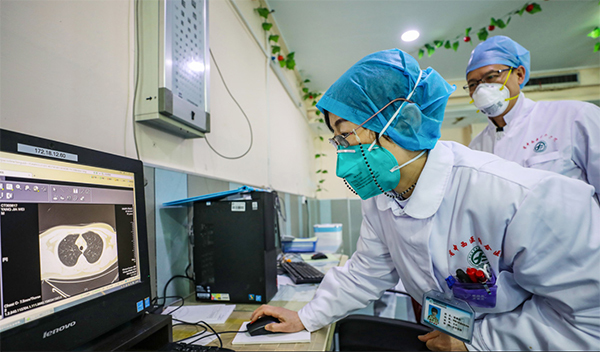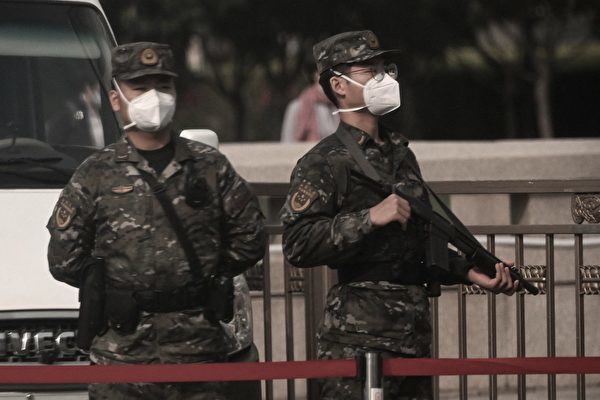Photo: U.S. President Donald Trump. (Photo by Win McNamee/Getty Images)
[People News] On February 7 (U.S. local time), U.S. President Donald Trump met with visiting Japanese Prime Minister Ishiba Shigeru at the White House. Ishiba was the second foreign leader to visit Washington and meet with Trump, following Israeli Prime Minister Benjamin Netanyahu. Japanese media had previously reported that this meeting would mark the beginning of a "new golden era" in U.S.-Japan relations.
Ishiba Shigeru Breaks Away from Xi Jinping, Heads Directly to Washington
Often perceived as pro-China and relatively weak, Japanese Prime Minister Ishiba Shigeru made a high-profile visit to the United States from February 6 to 8, meeting Trump at the White House on February 7. The two leaders engaged in fruitful discussions and achieved significant outcomes. In choosing to align with Trump rather than Beijing, Ishiba’s actions came as a major shock, much to China's displeasure and embarrassment.
China was displeased because Ishiba bypassed Xi Jinping, and embarrassed because the Chinese Communist Party (CCP) had misjudged him.
Before Trump took office, China had softened its stance toward Japan to better navigate future U.S.-China tensions, leading to improved Sino-Japanese relations. After Ishiba assumed office, China adopted a notably conciliatory approach toward Japan, implementing various diplomatic measures to win favor, such as restoring visa-free travel for Japanese tourists, gradually lifting restrictions on Japanese seafood imports, and even "acknowledging" Chinese military aircraft incursions into Japanese airspace.
Following political turmoil in South Korea—including the imposition of martial law, the impeachment, and subsequent arrest of President Yoon Suk-yeol—the U.S.-Japan-South Korea trilateral security cooperation framework established under Prime Minister Kishida faced significant challenges. Sensing an opportunity in the Indo-Pacific strategic landscape, China accelerated its efforts to court Japan.
On Christmas Day 2024, Japan's Foreign Minister Takeshi Iwaya made his first visit to China. Before his trip, Iwaya publicly stated, "Personally, I dislike the phrase 'a Taiwan contingency,' as Taiwan should remain 'uncontested' rather than being seen as a potential crisis." This statement indirectly contradicted former Prime Minister Shinzo Abe's position that "a Taiwan contingency is a Japan contingency." China welcomed Iwaya's remarks.
On January 13, just before Trump's inauguration, a delegation from China’s Eastern Theater Command made a surprise visit to Japan, meeting with senior officials from Japan’s Ministry of Defense and the Joint Staff of the Self-Defense Forces. They also toured various military facilities. This marked the first friendly military exchange between the two nations in five years. China's Ministry of Defense hailed the visit as a step toward "enhancing mutual understanding and trust, promoting Sino-Japanese defense exchanges." The news quickly trended online, causing nationalist "little pink" netizens in China to react with both confusion and frustration.
After taking office, Ishiba proposed the idea of an "Asian mini-NATO" on equal footing with the U.S. and suggested stationing Japan’s Self-Defense Forces in Hawaii. He also took a firm stance on Japanese companies’ acquisition of U.S. Steel. Furthermore, Ishiba expressed a strong interest in visiting China, even sending a handwritten letter to Beijing. These moves led the CCP to believe that there was a rift in U.S.-Japan relations and that Ishiba was leaning toward China.
However, China’s assumption was merely wishful thinking, exploiting the domestic political uncertainties in the U.S., Japan, and South Korea. According to Japan’s Kyodo News, Ishiba’s U.S. visit coincided with the opening ceremony of the Harbin Asian Winter Games. Chinese Foreign Minister Wang Yi had informally suggested that Ishiba use the opportunity to attend the opening ceremony and meet with Xi Jinping, expecting Japan to accept the invitation.
But things did not go as China had hoped. Ishiba outright rejected the invitation, delivering a clear message with his actions—his plane bypassed Beijing and flew straight to Washington, where he strengthened U.S.-Japan ties with Trump. This move caught Beijing completely off guard, leaving the CCP red-faced.
U.S.-Japan Strengthen Economic and Trade Cooperation, Ushering in a New Golden Era
On January 20, during his inaugural speech, President Donald Trump vowed to lead the United States into a golden era. According to Japan's Kyodo News on February 5, multiple government sources revealed that the U.S. and Japanese governments were working on a joint statement to be released in conjunction with the February 7 summit, aiming to include the phrase "building a golden era for U.S.-Japan relations" to demonstrate a commitment to deepening cooperation.
At 12:50 AM Beijing time on February 8, Trump welcomed Japanese Prime Minister Ishiba Shigeru at the White House. Trump praised Ishiba, saying, "He is a highly respected leader and has done an outstanding job." Accompanying Ishiba on his visit were Japan’s Foreign Minister Takeshi Iwaya, National Security Bureau Director Okano, and Deputy Chief Cabinet Secretary Tachibana. During a joint press conference, Trump and Ishiba outlined several upcoming areas of economic cooperation:
- A U.S.-Japan joint venture to construct an oil and natural gas pipeline across Alaska for export to Japan.
- Japan’s increased imports of American bioethanol, ammonia, and other resources.
- Japanese automaker Isuzu to build a manufacturing plant in the U.S., creating jobs for Americans.
- Japan's annual investment in the U.S. to rise from $800 million to a record $100 billion.
- Nippon Steel to acquire U.S. Steel and reinvest in American infrastructure.
Previously, SoftBank’s Masayoshi Son had committed to investing $50 million in Trump’s "Stargate AI Grand Strategy." Ishiba’s visit has further elevated the U.S.-Japan economic alliance, helping to counter China’s aggressive economic policies and strengthen the resilience of the U.S.-Japan partnership. After the summit, the two leaders issued a joint statement titled "Pursuing a New Golden Era of U.S.-Japan Relations." Ishiba stated, "A strong and unwavering U.S.-Japan alliance is more important than ever. I look forward to working closely with President Trump to usher in a new golden era for our relations."
In 2024, the U.S.-Japan trade deficit stood at just $70 billion, and Trump made no mention of tariffs on Japan.
Extending Abe’s Strategy to Counter China’s Threats
During the Ishiba-Trump summit, the Taiwan issue was a major focal point, directly challenging Beijing. According to Voice of America, Ishiba and Trump emphasized the importance of maintaining peace and stability across the Taiwan Strait, stating that they "oppose any attempts to unilaterally change the status quo through force or coercion." They also voiced support for Taiwan’s "meaningful participation in international organizations."
The two leaders reaffirmed their strong opposition to China’s attempts to alter the status quo in the East China Sea through military or coercive means, as well as China’s illegal maritime claims, island militarization, and provocative actions in the South China Sea. Japan committed to increasing its defense and security-related spending to 2% of GDP by the 2027 fiscal year. They also announced plans to convene a U.S.-Japan Security Consultative Committee (2+2) meeting as soon as possible to enhance Japan’s strategic position in the Indo-Pacific security framework. The U.S. and Japan pledged to strengthen multilateral security cooperation, including Quad (Japan-U.S.-India-Australia), U.S.-Japan-South Korea (ROK), U.S.-Japan-Australia, and U.S.-Japan-Philippines security initiatives to jointly counter China’s military threats and economic coercion in the region.
In February 2017, then-Prime Minister Shinzo Abe and Trump issued a joint statement affirming that "the U.S. commitment to Japan’s defense, including the full range of its military capabilities, remains unwavering." The recent Ishiba-Trump summit reconfirmed this commitment. According to Japanese media, the two nations have explicitly stated that U.S. military support for Japan includes nuclear deterrence. Trump also revealed that he had approved $1 billion worth of military equipment sales to Japan under the Foreign Military Sales (FMS) program.
The U.S.-Japan joint statement explicitly incorporated Abe’s "Taiwan contingency" doctrine into their bilateral defense mechanism, striking a direct blow to China and crossing its red line. The Trump administration has recently ramped up its Taiwan policy, with Senator Marco Rubio praising Taiwan as a "democratic nation" during his visit to Guatemala. Additionally, 24 U.S. lawmakers have introduced a bill to restore formal diplomatic relations between the U.S. and Taiwan. This strategy appears to hit China where it hurts the most. If the U.S. and Taiwan were to establish diplomatic relations, it could become the strongest guarantee for Taiwan’s security and the clearest U.S. strategy on Taiwan since the Carter administration.
Interestingly, in a gesture of goodwill toward Trump, Ishiba appointed Takao Nao, a key interpreter from the Abe-Trump "honeymoon era," as the official translator for the summit. A senior Japanese official commented that Takao’s translation style is "concise and easy to understand," which Trump greatly appreciates, even referring to him as "Little Prime Minister."
During the meeting, Ishiba sincerely praised Trump for his resilience, recalling the moment when Trump clenched his fist toward the sky after surviving an assassination attempt, saying, "That image left a deep impression on me... It may be one of the most unforgettable photos in history." Ishiba also mentioned that he was deeply moved by the book Peace, which Trump had given to him through Abe’s widow, Akie Abe, stating that "this book contains some of President Trump’s most profound thoughts."
On December 15, 2024, Trump and his wife Melania had a highly publicized dinner with Akie Abe at Mar-a-Lago, sparking global discussion. The pragmatic Ishiba clearly understood the significance of Abe’s diplomatic legacy in Trump’s U.S.-Japan alliance strategy, realizing that Abe’s approach aligns with Trump’s strategic interests.
So far, China’s state media outlets, including Xinhua and People’s Daily, as well as the Foreign Ministry, have remained completely silent on the Ishiba-Trump summit. This likely reflects Beijing’s frustration and helplessness. Confronting Trump is not an option, and turning against Ishiba—after investing heavily in wooing him—would mean wasting all their efforts. As a result, Beijing has no choice but to swallow its pride and endure the setback. △
(First published by People News)










News magazine bootstrap themes!
I like this themes, fast loading and look profesional
Thank you Carlos!
You're welcome!
Please support me with give positive rating!
Yes Sure!